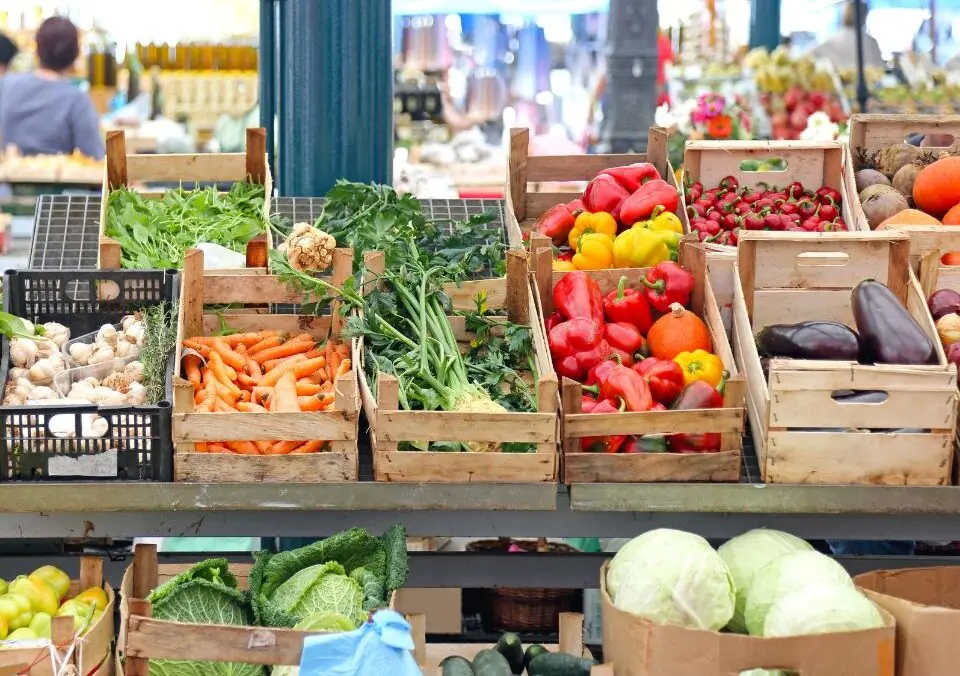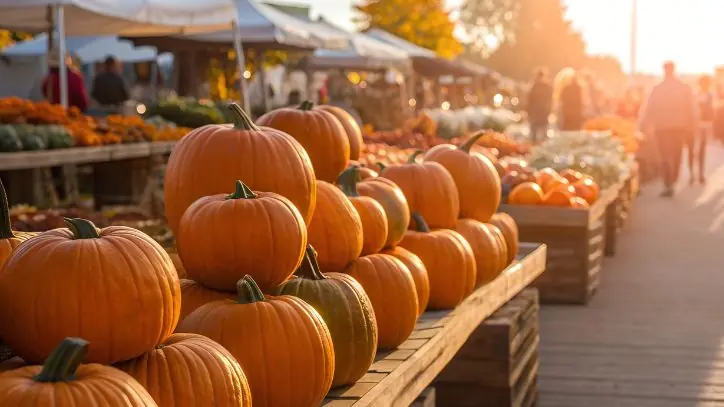Blog
Do Your Shopping at Your Local Farmer’s Market!

Finally, the weather here in Arizona is starting to cool down into more bearable temperatures. This change signals the perfect opportunity for a variety of fun, outdoor activities, particularly exploring the vibrant atmosphere of local farmers’ markets. These markets offer so much more than just fresh produce; they are a hub for community, sustainability, and support for local economies.
In my case, my interest in farmers’ markets peaked when my little brother began selling raw honey produced from his own bees at local markets. Witnessing his journey has deepened my appreciation for these community staples. I would like to share my three favorite aspects of local farmers’ markets, plus some additional insights into why they are an essential part of our communities.
1. Supporting Small Businesses
One of the most appealing features of local farmers’ markets is their commitment to supporting small businesses. Most vendors are individuals or families who own their own enterprises, ranging from artisanal food producers to craftsmen and artists. These entrepreneurs pour their passion and hard work into their products, and by shopping at farmers’ markets, consumers play a key role in their success.
My brother is a perfect example of this. He started his journey by selling honey to family and friends, and through sheer determination and a bit of luck, he transformed his tiny endeavor into one of the most popular booths at our local market. This microcosm of small business development illustrates a vital economic principle: when you support local vendors, you are not only fueling the local economy but also fostering entrepreneurship within your community.
According to the Small Business Administration, small businesses create two-thirds of new jobs each year in the U.S. By shopping at farmers’ markets, you are contributing to this dynamic ecosystem, helping to sustain dreams and livelihoods. Additionally, local products often have higher quality and freshness compared to those found at larger grocery chains. The close proximity to the source means these products are usually harvested at peak ripeness, providing better flavor and nutritional value. For a deeper understanding of why local produce is superior, consult The USDA’s Guide on Local Foods.

2. A Fun Outdoor Activity
If you’re anything like me, you know how dreadful it can feel just staying indoors all day. The temptation of cozy couches and streaming services can be strong, but there is something invigorating about getting outside and enjoying nature. Walking through a farmers’ market not only ignites your senses with the vibrant colors and delightful aromas but also gets you moving.
Farmers’ markets are bustling with life. You can engage in leisurely strolls while perusing attractive booths filled with colorful fruits, vegetables, artisanal breads, and homemade preserves. The fresh air and physical movement of walking can be an excellent way to enhance your overall well-being, both physically and mentally.
Additionally, there’s a social aspect to farmers’ markets that can’t be overlooked. They usually draw diverse crowds, which means you have an opportunity to meet and connect with new people. Local events often include live music, cooking demonstrations, and workshops, making it easy to strike up conversations. You can learn about the products you’re buying directly from the people who produce them. These interactions not only foster community spirit but also create relationships built on mutual support.
For those who want to incorporate fitness into their routine, wandering through various market stalls can count as a fun form of cardio. It could also inspire you to create seasonal dishes based on what you find. You might even want to check out Farmers Market Nutrition Programs that encourage healthy eating by allowing WIC participants to purchase fresh fruits and vegetables, ensuring that everyone can benefit from the nutritious bounty offered at these markets.
3. Access to Fresh, Seasonal Produce
One of the most rewarding aspects of farmers’ markets is the access to fresh, seasonal produce. Seasonal eating is a wonderful philosophy that resonates with both health and sustainability. Not only does consuming fresh, seasonal produce make for tastier meals, but it also benefits the environment. Seasonal produce requires fewer resources, such as water and transportation, which translates to a reduced carbon footprint.
When you shop at a local farmers’ market, the fruits and vegetables are often harvested within days of being displayed, which is a stark contrast to products in grocery stores that can be shipped from thousands of miles away. This means you’re likely to be getting fresher and more nutritious options.
For example, in Arizona, you can find a variety of fruits like peaches, tomatoes, and melons during the warmer months, while fall brings an array of squash and root vegetables. You can also discover locally made products, from baked goods and cheeses to jams and salsas, all made using local ingredients.
Learning about the seasonal varieties available in your area can be empowering. You become more connected to the land and the farming community. For example, websites like Seasonal Food Guides provide valuable information on what’s in season in your area, enhancing your shopping experience.
Why Embrace Farmers’ Markets?
Beyond my personal preferences, engaging with farmers’ markets contributes to broader social and environmental goals. It signifies a move away from industrialized food production systems, which often prioritize convenience over quality. By buying direct from farmers, you support methods and practices that prioritize sustainability, animal welfare, and fair labor practices.
Farmers’ Market Experience
When attending a farmers’ market for the first time, have an open mind and consider your taste and likes. Bring reusable bags or containers to minimize environmental impact and to make your shopping easier. Many vendors are happy to share the stories behind their products, which can add richness to your shopping experience.
You might also want to engage in a bit of tasting! Many vendors offer samples, so you can discover new favorites without committing upfront. If you’re uncertain about cooking certain items, don’t hesitate to ask the vendors for recipe ideas or cooking tips; they are usually enthusiastic about sharing their knowledge.
Finding Your Local Farmers’ Market
If you’re interested in discovering more about farmers’ markets in your area, consider checking out our Find a Farmer’s Market Tool. These websites provide listings and details about markets across the United States, including their operating hours, special events, and featured vendors.
Community Engagement
Moreover, farmers’ markets often serve as community hubs where local events and programs can take place, such as cooking demonstrations, nutrition workshops, and educational programming for children. This involvement fosters a sense of community belonging and encourages people to engage with their neighbors and local businesses.
To sum it up, shopping at local farmers’ markets presents myriad benefits. From supporting small businesses and promoting healthy lifestyles to gaining access to fresh produce and enjoying community gatherings, these markets are a treasure trove of opportunity.
So, next time you’re pondering what to do on a lovely day or looking for your weekly groceries, consider visiting a farmers’ market near you. You’ll likely walk away not only with fresh food but also with a fulfilling sense of connection to your community and local producers.
By Heide Kennedy, Arizona Farm Bureau Communications Intern


















